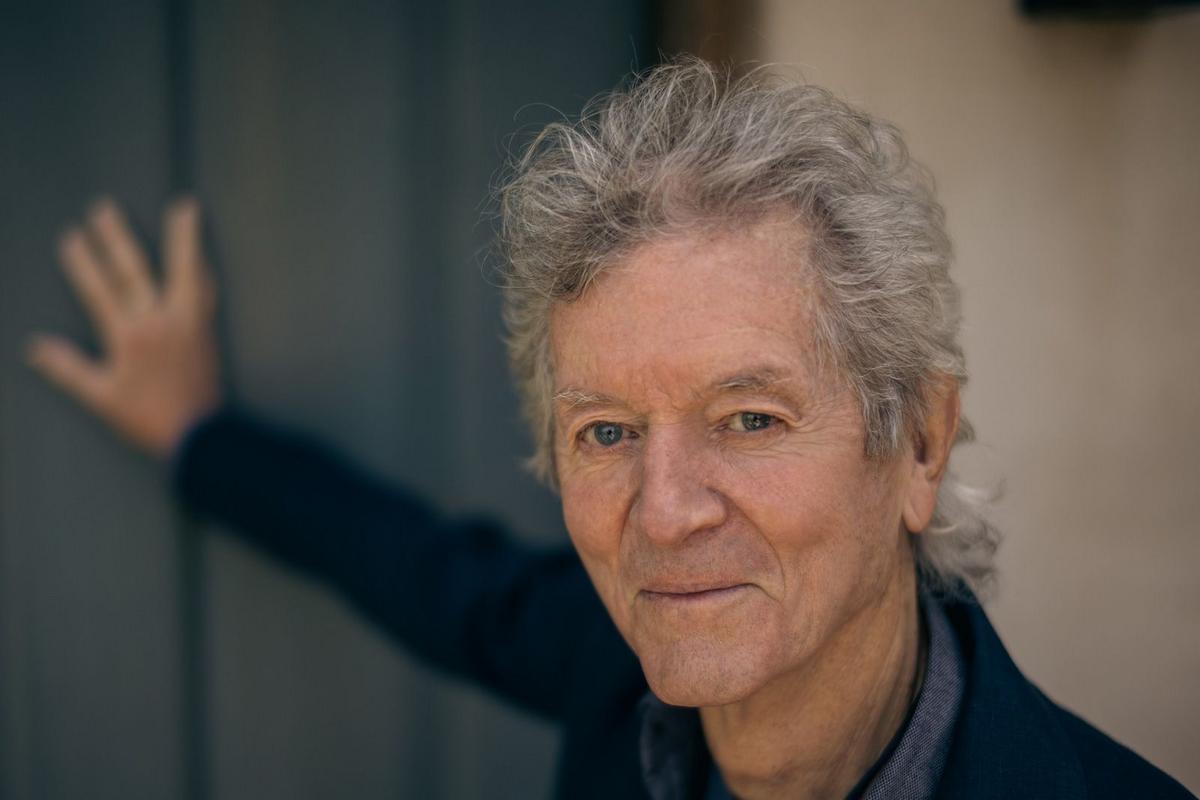Rodney Crowell‘s new album is not necessarily the project fans might have expected from him in this cultural moment — but it’s also a much-needed breath of fresh air.
Crowell is one of country music’s most iconic songwriters, with every new collection of songs displaying his long-held penchant for digging deep into musical and emotional exploration.
He holds true to that for Airline Highway, but he also departs from his normal modus operandi for an album that leans into feel-good songs.
The album tends to highlight more accelerated tempos, long instrumental passages and an overall sunnier look at the world — seemingly despite the fact that it arrives at what many see as a very difficult time.
That’s not true of all of the songs. Crowell himself points to tracks including “Taking Flight” — a collaboration with Ashley McBryde that served as the lead single — and “Maybe Somewhere Down the Road” as darker, more hard-hitting songs that anchor the new album in the same kind careful, studied craftsmanship that has always marked the best of his work.
I got to speak with Crowell at length in advance of the album release on Aug. 29.
It was our sixth interview over the course of a bit more than a decade, and I found the acclaimed singer-songwriter as consistently forthcoming, erudite and charming as always. Crowell never seems in a hurry, and the trick of interviewing him is to know when not to interrupt him when he’s poised to make an important point.
Alternately self-effacing, brimming with confidence and never anything short of slyly hilarious, Crowell was in his usual form when we caught up for the conversation that follows:
Taste of Country: I have to say, this album is a little bit of a surprise to me. It’s — dare I say it — a bit of a feel-good album at a pretty dark time for the world.
Rodney Crowell: You can always count on me being out of step with the rest of the world! [Bursts out laughing].
Did you go into this project intending to make a feel-good record?
I don’t know. Well … it felt good making it, put it that way. Our intention was to have fun.
To make a feel-good record wasn’t conscious, although it just came out that way. “Louisiana Sunshine Feeling Okay,” that’s a statement. If I go down through the list, “Taking Flight” takes a dark turn.
There’s definitely some introspection. But overall, I’d say this album leans a little bit away from — I suppose I expected you to make a big sociopolitical statement in this difficult time. You haven’t really leaned into that in this instance.
Well, I did that a few records back with Triage. I was ahead of my time. [Laughs].
It’s not that I’m not concerned. It’s just that, you follow the muse. And who knows? Maybe my job right now is to provide some feel good when a lot of people don’t feel very good.
I just try to write the best songs that I can, and then make records that are fun. I love my job. It’s just a sh-tload of fun. [Laughs]. There are times when it’s work, but for the most part, it’s, “Man, can you believe we get to do this?” I don’t take it for granted.
I wanted to go down some song titles and get your take, beginning with “Rainy Days in California.” You collaborated with Lukas Nelson on that.
We wrote a couple of songs in a very short period of time, starting with something he had. Then I said, “I’ve got something started,” and when it was done, I said, “Look, when I record this, I think you need to sing on it.” So that’s how that came to be.
The narrative is that the narrator is headed back from California to the swamps, and I said, “Well, this works as an opening paragraph to this album.”
Was that the first song written for the album?
I don’t even remember the order. “Louisiana Sunshine Feeling Okay” might have been first.
That’s a collaboration with Larkin Poe. How did that come about?
Well, Tyler [Bryant], who produced the record, is married to Rebecca [Lovell], who’s one of the sisters in Larkin Poe. We were working at Tyler’s studio in their basement. So all they had to do was stumble downstairs. [Laughs]. That was easy. That was a no-brainer.
That’s pretty carefree. I don’t even know if I realized how carefree it was at the time. And then when it rolls into “Something Thang” — that’s a result of somebody making a play on my then-girlfriend, who’s been with me ever since.
You’re talking about Claudia [Church, Crowell’s wife since 1998], of course.
I’m talking about Claudia. There was a moment in our early days when a Hollywood dude tried to step in.
I’m not going to ask you for the name, but … this is a person we would all know if you said his name?
Oh yeah. Everybody would. I wouldn’t say his name. It’s not that I want to nail him personally, it’s that I wanna nail the moment.
The interesting thing about that song is that I worked on it and worked on it with an entirely different melody and a different approach. I was trying to do something dark and heavy with it.
And then one day I came here to my studio and I picked up the guitar, and I just played it. Just like that, with a lyric I’d been trying to shove into a different hole. And when I did it, I actually stopped, turned on my phone and recorded it very quickly. So melodically, it was instantaneous, which I think makes the song exist sort of as if it just grew out of the ground.
We’ve talked quite a bit previously about your propensity for laboring very carefully over your songs, even to the point of re-working older, existing songs. How does it feel to work on the other end of that spectrum and just create a thing in that moment and try to let it go?
It’s more enjoyable. It’s more rewarding, too. But at the same time, I don’t have to tell you this — we’ve probably talked about, you being a writer, you know how important revision is. And the times you don’t have to revise, you know … spontaneity can happen and remain in place. And then again, sometimes you’ve gotta roll up your sleeves and track that baby down.
I really had not thought about the more optimistic theme of the record, but I’m thinking about Ashley [McBryde]. If you go into “Taking Flight,” I remember I came up with the first couple of verses before we got together.
I remember thinking, “This is sweet. This is language.” And then when Ashley arrived and we got down into the sculpting the rest of the song, I’d say that even with a darker subject like that, the song coming into focus was pretty light-hearted.
How did that opportunity come to both of you?
Now and again, I get a phone call saying, “Hey, do you want to write with .. somebody?”
Ashley and I wrote “Making Lovers Out of Friends” for The Chicago Sessions. So were pretty successful for the three days that we spent writing. I think we wrote three songs, so that’s not bad.
Does that mean there’s still one that’s yet to emerge?
Yeah. I thought it was more designed for her.
I might have forced a song that was aimed at her, instead of just being her. I’m not at my best when I try to force a song to be something. If I’m patient enough, the song will tell me what it wants to be.
I wanted to ask you about “Simple (You Wouldn’t Call It Simple).” To me, that almost seems like a musical shrug.
Oh, that’s interesting. That’s really interesting, man, I’ve never considered a song from that angle.
I just mean in terms of, whatever’s going to be is going to be, and that’s the way it is, seems to be the message of that song.
It is what it is, and it ain’t what it ain’t, yeah. Simple isn’t all that simple.
Maybe the shrug is to myself. I think that’s a letter to myself. I like that song a lot, and I wonder if it will become something that I ever perform live. Will I? I wonder if it’s not just a shrug! [Laughs].
There’s a song on here titled “Heaven Can You Help” with Charlie Starr from Blackberry Smoke. What can you tell me about the genesis of that?
I’m as liberal as anybody can get. [Laughs]. Well, I guess not anymore. My version of liberal makes me a centrist now.
So I’m as centrist as anyone can be, and that song is the work of a liberal-minded writer. But I was careful in the writing of it that it honored … “Heaven Can You Help” is a prayer, but it could be from either side of the fence. I went about it in such a way that it wasn’t judgmental of either side.
Do you believe Heaven’s going to help anybody, or do we have to help ourselves?
Well, in that sense, no. Heaven, in terms of a Hail Mary? I don’t think so.
But in terms of, there’s a spiritual aspect to the way I go about my practices as someone who meditates, and someone who has a monologue that’s going out to who knows where.
Religion is a problem for me because of the control, and because of just the havoc that it’s wreaked, as far back as you want to go. It’s got so much to answer to. And that part of it makes Heaven or a god a tricky path to follow.
But listen, man, I don’t get to stake any claims on this, but I can say that I have connection to something beyond me that is compassionate, forgiving and non-judgmental.
The track that closes the record, “Maybe Somewhere Down the Road,” is dramatically different from the rest of the songs, both musically and lyrically.
I said, “This song doesn’t belong on the record. It’s got strings, it’s different … it doesn’t belong on the record.” And everybody on my team was saying, “No, you’ve gotta do it.”
Really, I was just telling myself it didn’t belong.
Did you think it was too personal?
That, maybe. It’s a true story. It’s something that happened. It was a suicide, and in the end, it could have been a relationship, and it wasn’t.
It went another way, but it was an important six months in my life, and to later find out the way that she chose to go out … in the end, that’s why I listened to everybody else and put it on the record. I said, “This is a true statement, even if it’s a departure.”
It was too dark, too personal, too different … but it was the freakin’ truth.
How does Claudia feel about songs like that?
Claudia understands. For me to write truthfully about something like that, it poses no threat to our relationship. She and I are one thing, really, and nobody could be more supportive.
Truthfully, sometimes I don’t ask her … for instance, on that song I might not ask her how she feels, because she might not want to tell me. But at the same time, I don’t pay a price — emotionally or in any other way — for the way that I create what I create.
Rodney Crowell’s Airline Highway is currently available via a wide variety of digital music services.
Keep track of Rodney Crowell’s upcoming tour dates at his official website.
See the Most Played Country Song from the Year You Were Born
Who had the most played country song during the year you were born? This list is a fascinating time capsule of prevalent trends from every decade in American history. Scroll through to find your birth year and then click to listen. Some of these songs have been lost through the years, many of them for good reason!
Gallery Credit: Billy Dukes



